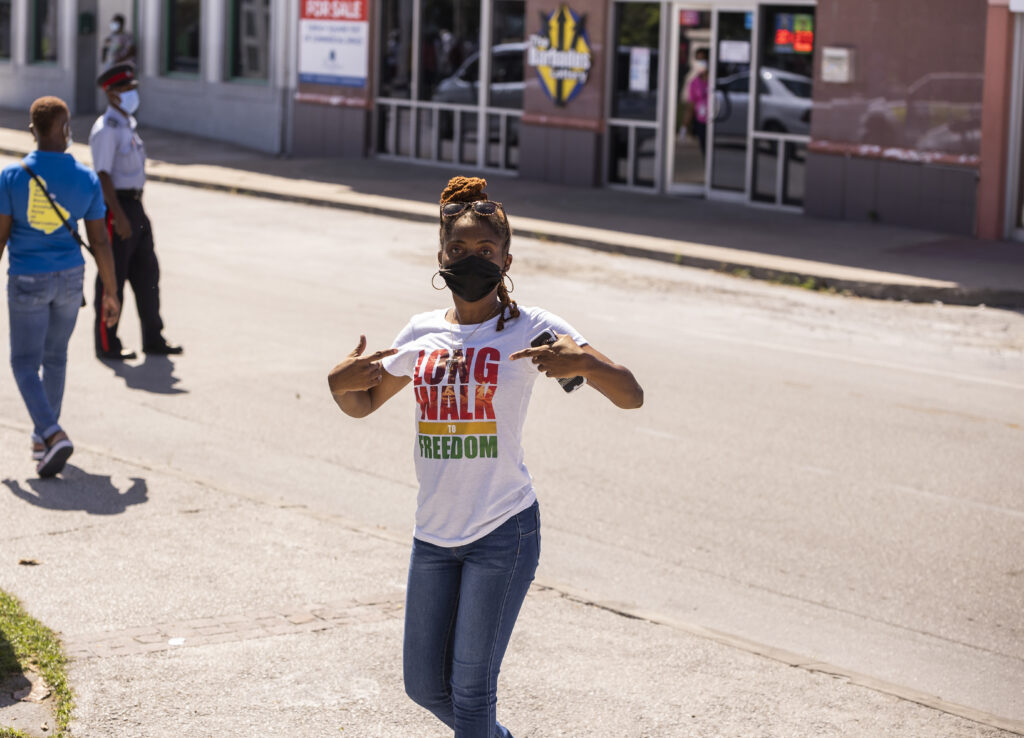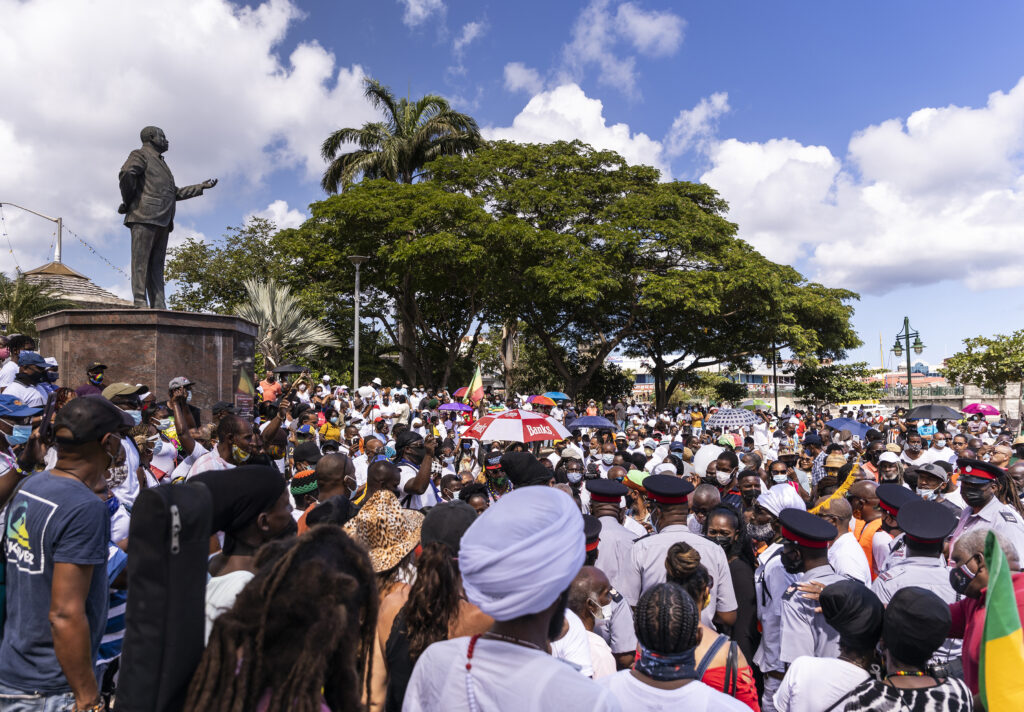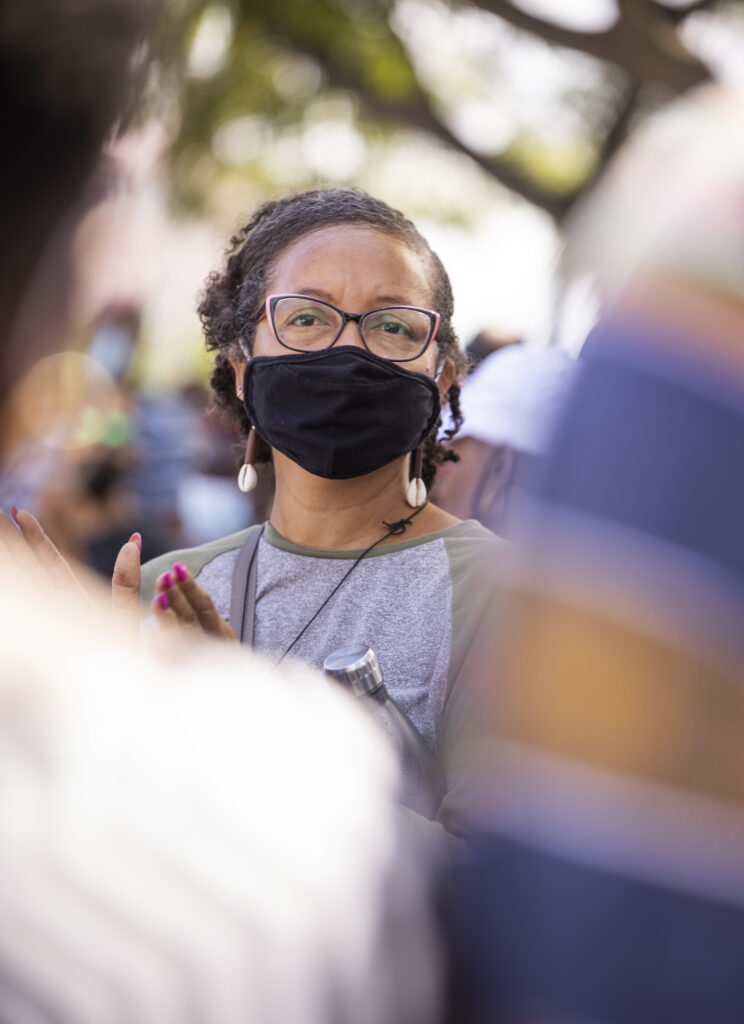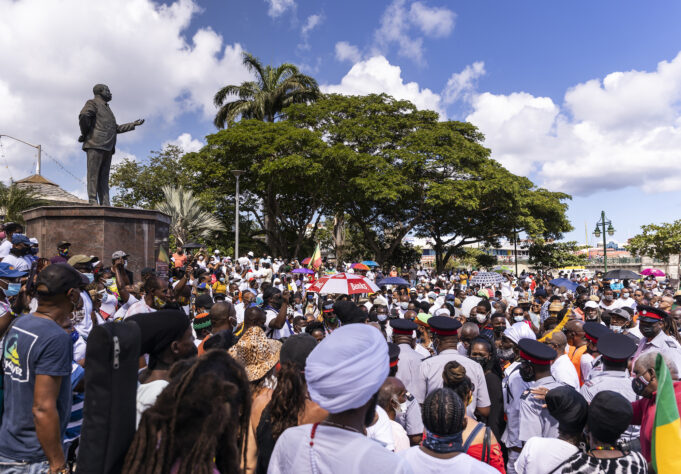Thousands took to the streets of Bridgetown inBarbados for a Walk for Freedom and rejection of a coercive campaign to force the island nation’s residents to bow down to mandatory vaccinations or face losing their jobs, and possibly other things, like their children’s access to schools.
The Saturday action was organized by a coalition of groups who are opposed to forcing people to take an experimental vaccine and violating local law that says workers can’t be made to take medication or medical tests as a condition of employment. They are further outraged their government is using businesses, calling them “social partners,” to push the directive. They say the concern isn’t health given that the island has few Covid deaths and relatively few infections but a desire to reopen the tourism industry.
Abdul Rahman Muhammad, student minister for the Nation of Islam in the Barbados who is based in Bridgetown, said, “We decided that we could no longer remain silent on what we were seeing. The governments, not only in Barbados, but in other parts of the Caribbean, were moving to mandate vaccination. And even though they knew that there were laws that would prevent them from doing it easily, they knew they would have to amend some laws.”
“We felt that they were colluding with local businesses to mandate or soft mandate the vaccine. So local businesses have been sending letters to their employees insisting that their employees get vaccinated or face a situation where either every week or every other week, they would have to provide a negative PCR test at their own expense and being done on their own time,” he explained.
He and others, like activists Winston Clarke and Emmanuel Beryilla, decided to come together and form the Barbados Coalition of Concerned Citizens Against Mandated and Coerced Vaccination.
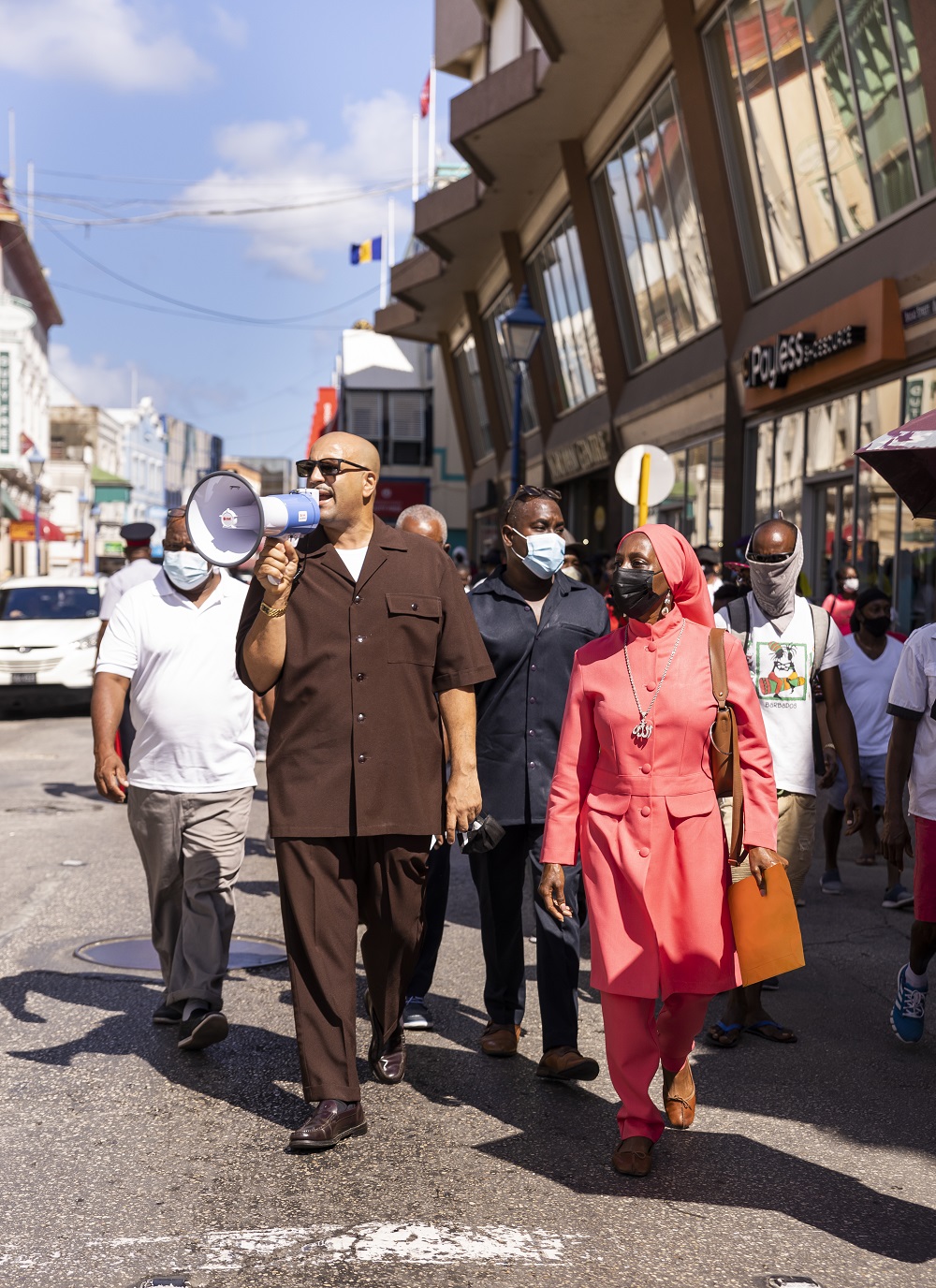
Apparently, thousands agreed with their views as organizer Winston Clarke estimated that 5,000 people, a significant crowd for the small island, came out. And, he said, the Aug. 7 action in the Barbados was mirrored in different ways in Jamaica, Grenada, Antigua, and other Caribbean islands.
The action was a Freedom Walk due to limited gatherings under Covid 19 restrictions in Barbados, which limit any coming together at 150 people and require approval, organizers explained. They described it as similar to prohibitions during slavery that limited the number of Blacks allowed to congregate together.
Since most of the coalition was religious groups, the Nation of Islam, the Progressive Rastafarian Movement, churches and other faith communities—alongside community groups, grassroots individuals and activists—permission wasn’t needed. They put out the word and took to the streets.
There was the pressure on workers and then the government saying it wanted to vaccinate 12 to 18 year olds, said Min. Rahman Muhammad. The vaccines came from China, then the AstraZeneca vaccine from India, and the campaign mounted quickly and divided the country, he said.
We asked the people of Barbados, vaccinated and unvaccinated, to stand on the principle of freedom of choice, not allowing anybody to discriminate against anyone based on their choice, he said. The walk was peaceful, the Muslim student minister continued.
“It really has changed the mood of the country. The mood of the country was generally a mood of anxiety and fear,” he said.
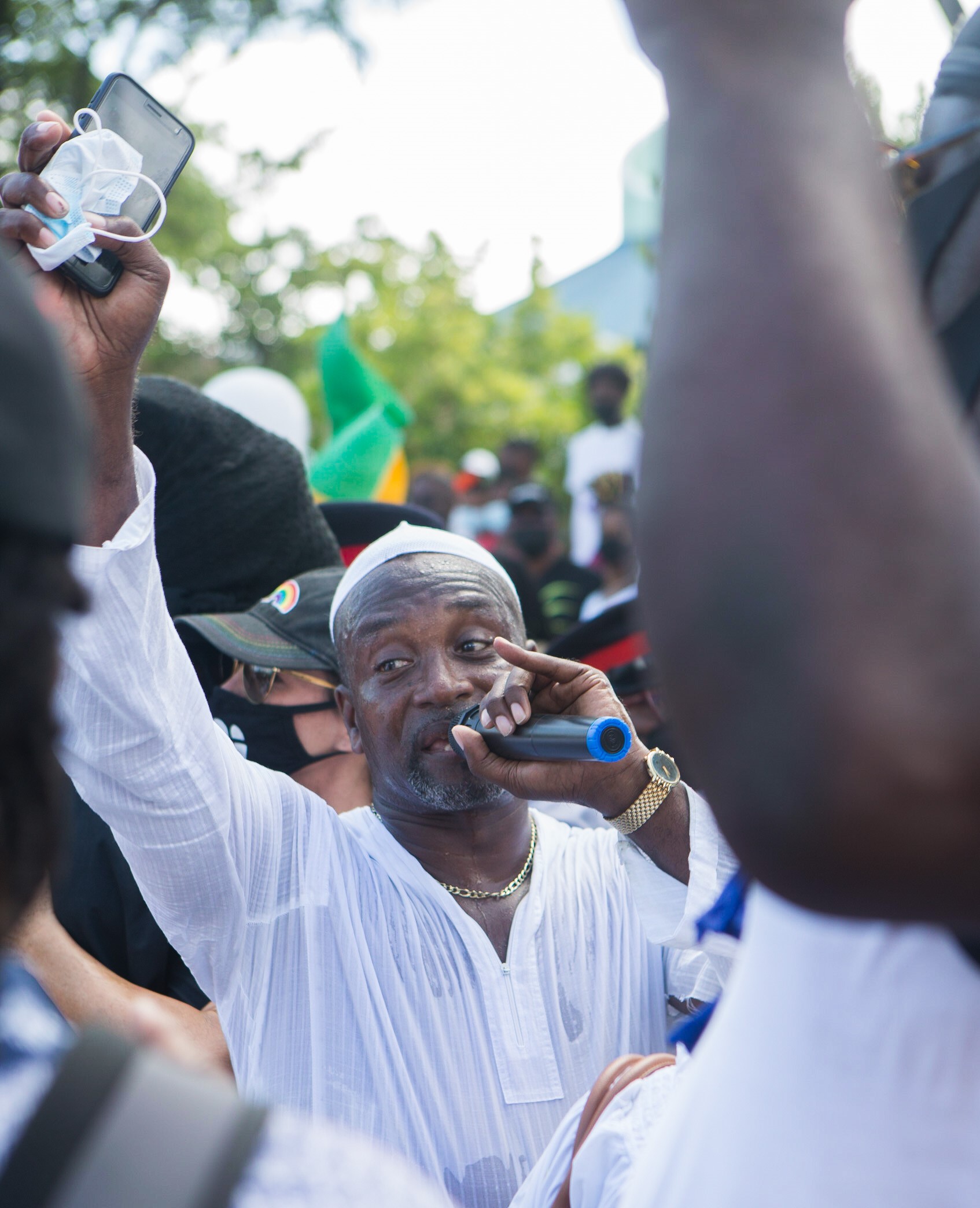
Among other measures imposed by the government was a quarantine for seven to eight days in a hotel at your own cost if unvaccinated but if vaccinated, just a test at the airport, one day hotel quarantine and then freedom, he said.
Min. Rahman Muhammad was driven by the words and guidance of the Honorable Minister Louis Farrakhan saying refuse the vaccines and those words resonated with people, especially young people in the Caribbean. In a major address last summer, the Minister told Blacks, indigenous people, Latinos, African leaders and the world not to take the deadly Covid-19 vaccines. In his message, “The Criterion,” he called for repentance in face of a pestilence from heaven, alternative treatments and therapies, and for Black experts in medicine to research and vet treatments for their people.
Min. Farrakhan “is very, very well loved in the Caribbean. So they have heard him loud and clear when, during his message to the world, in ‘The Criterion’ on July 4th, last year, they heard the Minister saying, don’t take the vaccine because of the history of treachery through vaccines and medication. So the people heard that, especially young people, they heard that loud and clear. So when they realized that the Nation of Islam was involved in the walk, I think that gave confidence,” he said.
“We reminded our government that these so-called vaccines are experimental, and they’re not approved. They’re approved for emergency use only. And we felt that the government was trying to hoodwink the people into believing that the vaccines are the same as the original vaccines that the people of Barbados have taken for generations. And they are not, and especially the messenger RNA ones and that are here now.
“We said to them that you were lying to the people when you keep putting this message out to the people that these vaccines are safe,” he said. “We know that’s not true just based on the short period of time, the way they were manufactured at warp speed without clinical trials, they cannot be safe.”
Winston Clarke, of the Steering Committee for the Barbados Concerned Citizens, started doing his own small protests against vaccine mandates earlier this year.
“There are a number of things happening with Barbados, where the government has been moving in a kind of dictatorial way where they’re implementing legislation without consultation with the population. And we strongly believe in citizen participation in legislation,” he said. “That is one of the reasons why we formed this coalition, because we believe that united we are stronger and in solidarity we can make a bigger impact on the powers that be.”
“You would think that in 2021, the idea of having to walk for freedom would be a thing of the past,” observed Emmanuel Beryilla of the Rastafari Progressive Movement. That you have to represent and fight for your sovereign self in 2021 and had to walk for freedom “clearly indicates we have an illusion of freedom,” he said.
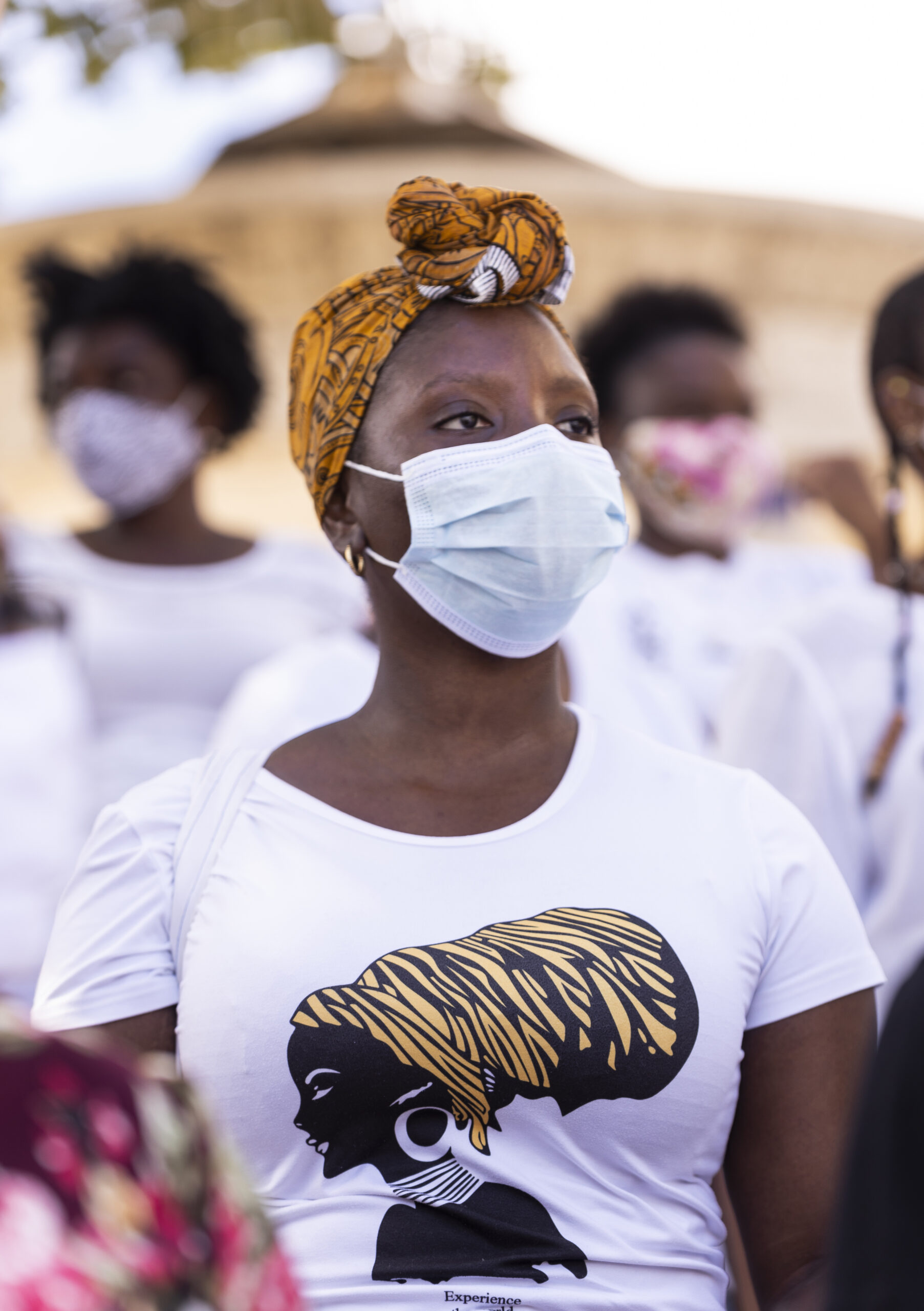
Most people think of the Caribbean as sun, blue water, white sand, tourist routes, and the arts, but there’s an untold story of the Caribbean, Mr. Beryilla explained.
“When we’re in a country now where you can’t even exercise your sovereign right to choose, it indicates that something is wrong,” he said. “I think that this has been brewing for quite some time. … The Caribbean as a whole is now waking up from a state of slumber. I think people are beyond the point of frustration,” he said.
“But the reality is at this point, we can no longer be divided by religion, political affiliation, be divided by social class, education, which is a whole another conversation, especially with the current (assault) coming from the colonial masters. We need to find a common ground of unification.”
Min. Farrakhan has “preached separation for some time, I don’t think people fully grasp what he was really saying. But if you think about it, even the Bible promotes that coming out of her, my people. Righteousness has no dwelling with wrongdoers or wrongdoings,” said Mr. Beryilla.
“I think at this point, we’ve got a focus on building the new nation for ourselves as a people,” he continued. “So what we did basically (Aug. 7) was liberate ourselves on a conscious level and in a sense, open a whole new dimension. We were asking politely, put diplomacy first and it’s fallen on deaf ears. So we put it out to the public and we had no idea what the response was going to be like, but we knew there were some people who feel the same way.
So you had religious organizations coming together and you’ve had political organizations come together, but you had everybody coming together with one common goal. And they had thousands of people come out. I mean, beyond anyone’s expectation,” he said.
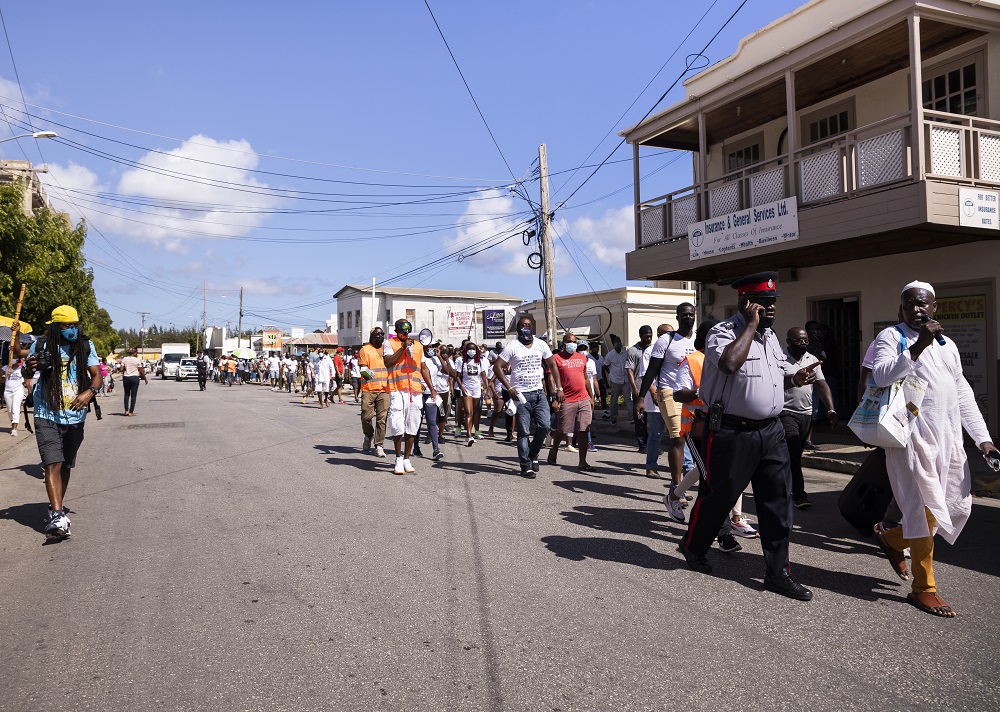
“I think at this point, people are waking up to realize, you know what, I don’t want anyone, tell me what to do and not to do, especially when it comes to my own body,” he continued. “Now it’s about empowering the people, learning, teaching, how to govern, how to govern your own economics, your home, your budget, your family affairs. And it really starts from home and coming out.”
Through collective action, “we empower our nation to take it to the next level,” Mr. Beryilla said.
Mr. Clarke called the unity across religious, social and even ethnic lines vital and as a Sunni Muslim was happy to see other Muslims, Rastafarians, Hebrew Israelites, and churches as part of the growing movement.
“We want to have a say in having our bodily integrity and self-autonomy,” Mr. Clarke explained.
He is also part of another group that is devoted to Pan-Caribbean unity and progress. He reached out to them about what was planned for Barbados to spread it. It worked. In Jamaica it was a Walk For Liberty, Grenada adopted the strategy with a kind of Mardi Gras, Antigua got involved as did other countries, Mr. Clarke shared. But there was harsh reaction in Antigua where people were teargassed during a peaceful protest, he said.
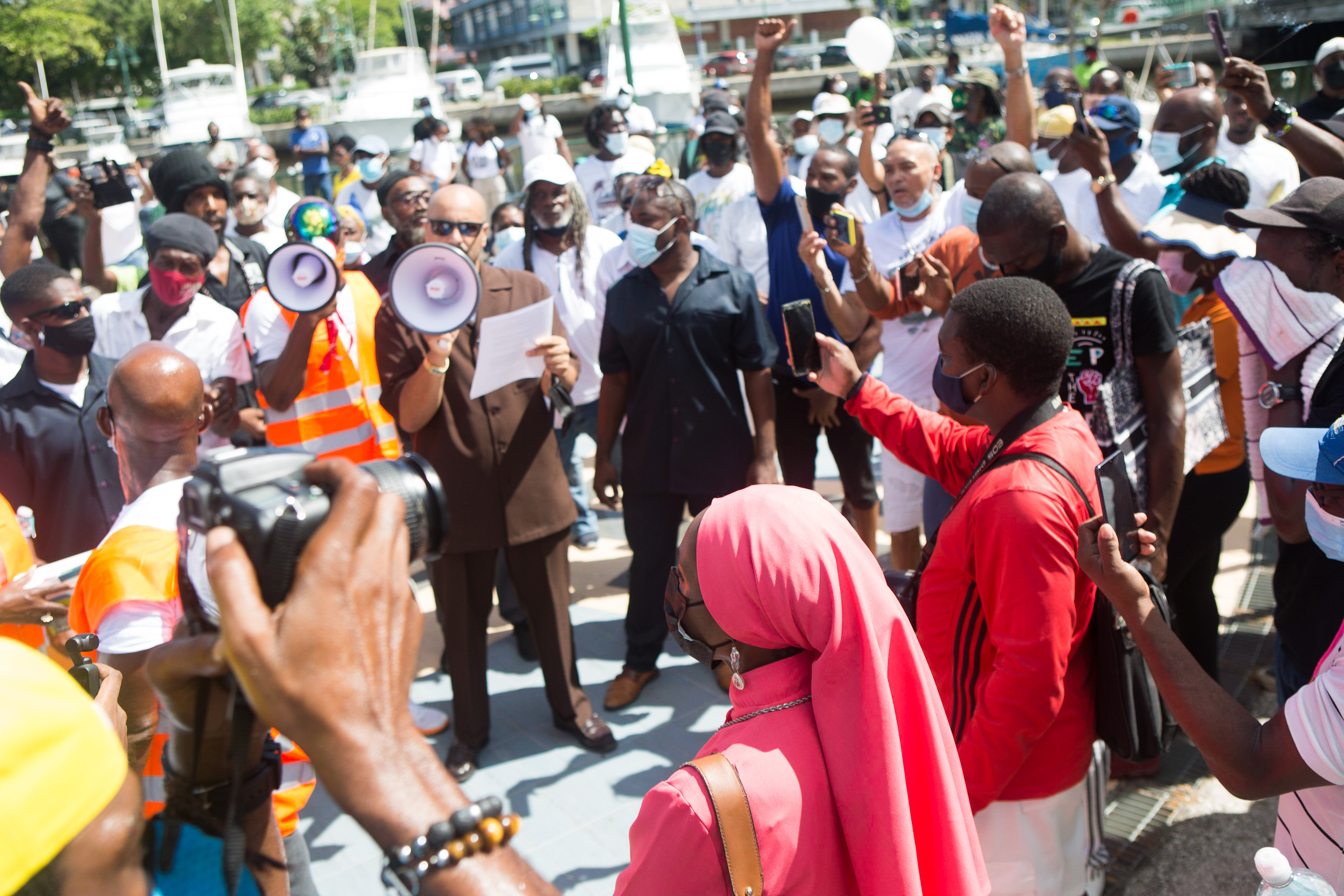
One person was shot in the chest with a canister and some children and elderly not part of the action were affected, he added. In St. Vincent and the Grenadines, where an opposition party opposed vaccine policy, the prime minister was struck by a rock. That protest had nothing to do with the Walk and was held days before the peaceful day in Barbados, but police are using it as an excuse to raid homes, detain people, confiscate phones and stop any form of protest in St. Vincent and the Grenadines, said Mr. Clarke.
“We need to make sure that the (thing) that’s happening worldwide does not happen in the Caribbean. We need to stand up,” stressed Mr. Clarke. The numbers in the Caribbean may not be as big but unity brings strength, he said.
“We are not anti-vax, what we are stating is we have not seen the long-term efficacy of this particular one,” said Mr. Clarke. And, he said, deaths have usually led to vaccines being pulled but not for the Covid-19 vaccines.
“They’re not approved, they’re for emergency authorization only. We don’t have any emergency in Barbados. Forty-eight deaths of people in Barbados since last year. And 4,400 or so have been infected,” said Mr. Clarke. Most of the 48 deaths have been among the elderly, those with compromised immune systems or co-morbidities. The country’s mortality rate is the same as it was last year and the year before, he said.
According to Associated Press Aug. 11, the Bahamas will receive 397,000 doses followed by Trinidad and Tobago with more than 305,000 doses. Barbados will receive 70,200 doses, while 35,100 are slated for St. Vincent and the Grenadines, 17,550 for Antigua and 11,700 for St. Kitts and Nevis from the United States.
“There’s no pandemic. And we do realize that there is something called covid. We realize that there is a virus going around and we realize we have the natural medications here in Barbados. We have Vitamin D, the sun. You have ginger and turmeric and those kinds of things that you can use. People have been catching covid and treating themselves at home, without the government knowing, and coming out good as gold,” Mr. Clarke said.
“It may be very debilitating for some people, but unless you have HIV or one of those very compromising immunity syndromes, it is not a problem, so to speak. But what we are looking at is the fact that the manufacturer has said, ‘we will not be held accountable if something happens to you.’ You’re not going to go to a store and buy an appliance from a manufacturer where there is no warranty. Nobody’s going to do that. So something has to be wrong,” he said.
Also the influential business pushing the directive, social partners in government language are funding the campaign and the coercion.
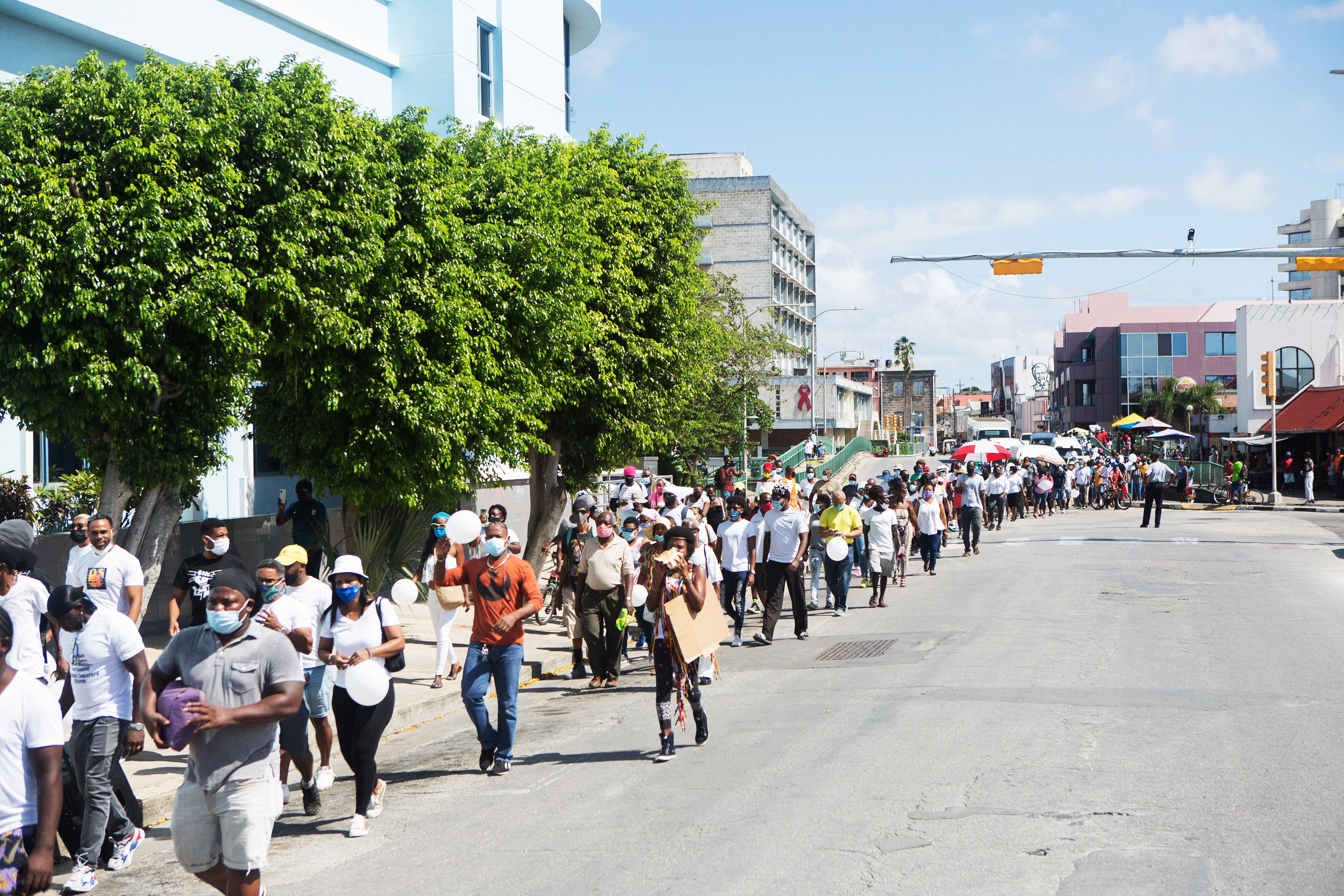
“We need to boycott these places. In the same way they are doing stuff and stopping us from earning a living, we need to also stop them economically the same way. We need to withdraw our money from the bank. We need to grow our own food. We need to stick with one another, be in solidarity with one another, help each other and just stop shopping at these places that are implementing these harsh draconian measures. We need to do that. We will be doing that,” he vowed.
The government response has also again brought up the concern about the Barbados and other Caribbean governments basing their economies almost exclusively on tourism to the exclusion of manufacturing or farming—and the vulnerability of that strategy.
“Barbados does not need politicians; we need visionaries,” Mr. Clarke said. The country’s dependency on tourism is driving the vaccine push, he explained. They’re opening the borders so fully vaccinated passengers can enter, but they have had covid outbreaks on fully vaccinated ships, he noted. “They’re so dependent on the tourist dollar here. They’re imperiling the livelihood of people, Barbadians, here by doing it.”
“We are thinking in terms of boycotting the employers who have coerced, because I can’t use another word other than that, coerced, intimidated their employees to take a vaccination in order to keep their employ.”
Under Barbados law, the Employment Discrimination Act, Section Six, employers are prohibited from forcing any employee to take a test or take any medication in order to keep a job or start a job, said the Walk For Freedom organizers. But, said Mr. Clarke, the government is even looking at changing that law. And the acting attorney general said in a town hall meeting that if anything happens because of the vaccine the manufacturer can be sued, he then apologized because manufacturers have an indemnity that doesn’t allow for legal action, said Mr. Clarke.
He added that some people didn’t come—like Seventh Day Adventists and Hebrew Israelites who had Sabbath observances, people who had to work and others who just didn’t know—but people are calling for another walk.
So our movement is getting stronger, and stronger and stronger, and not only stronger in Barbados but throughout the Caribbean, said Mr. Clarke, who is also a member of Concerned Citizens for a United Caribbean.
In Barbados, there are probes into how we were able to reach so many people, but that hasn’t hurt interest, he said.
“I’m getting calls from numerous people in Barbados, asking us to do it again because the enthusiasm is there,” he said.
Min. Rahman Muhammad said the tourism association needs to know “we’re not their slaves and they really have no business trying to force anyone to take a vaccine.”
Now it’s boycotting some businesses who sent threatening letters to their employees and organizing a broader campaign hopefully peaking in December with a Xmas boycott, “Up With Jesus, Down With Santa,” he said.
“We want to hit them in their pockets because we know when you hit a supermarket in their pocket over that time of the year, we know that they’re going to back off. They kind of sit up, take note of what it is,” he said. “We’re so grateful for the Honorable Minister Louis Farrakhan, the clear guidance Allah (God) gives us through him. It’s invaluable.”
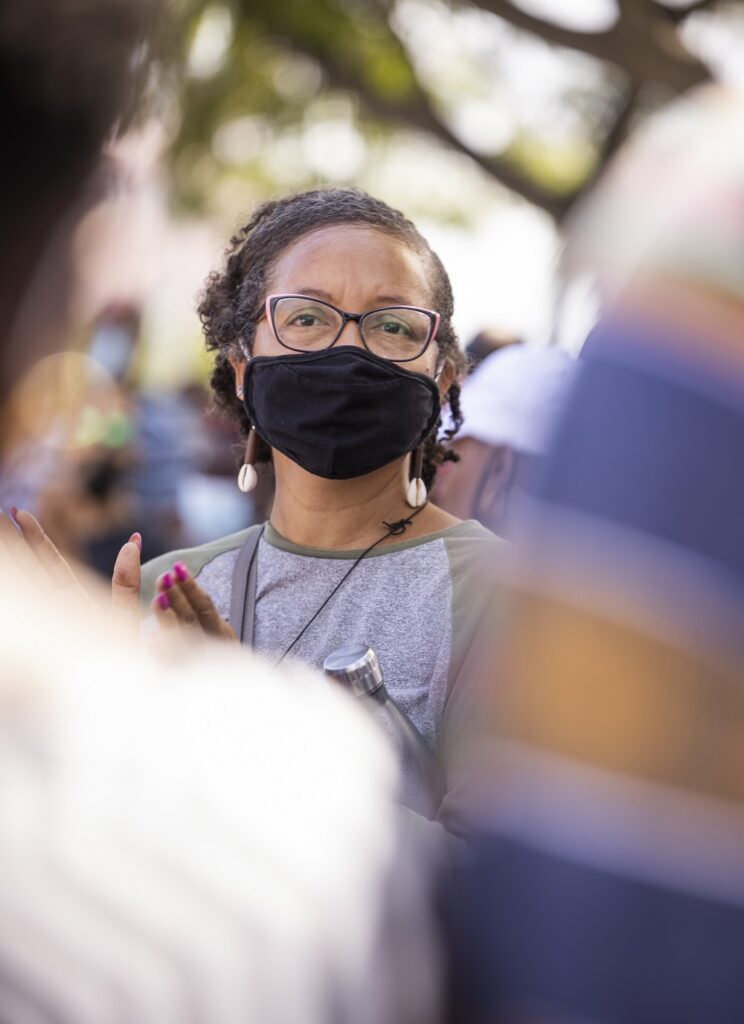
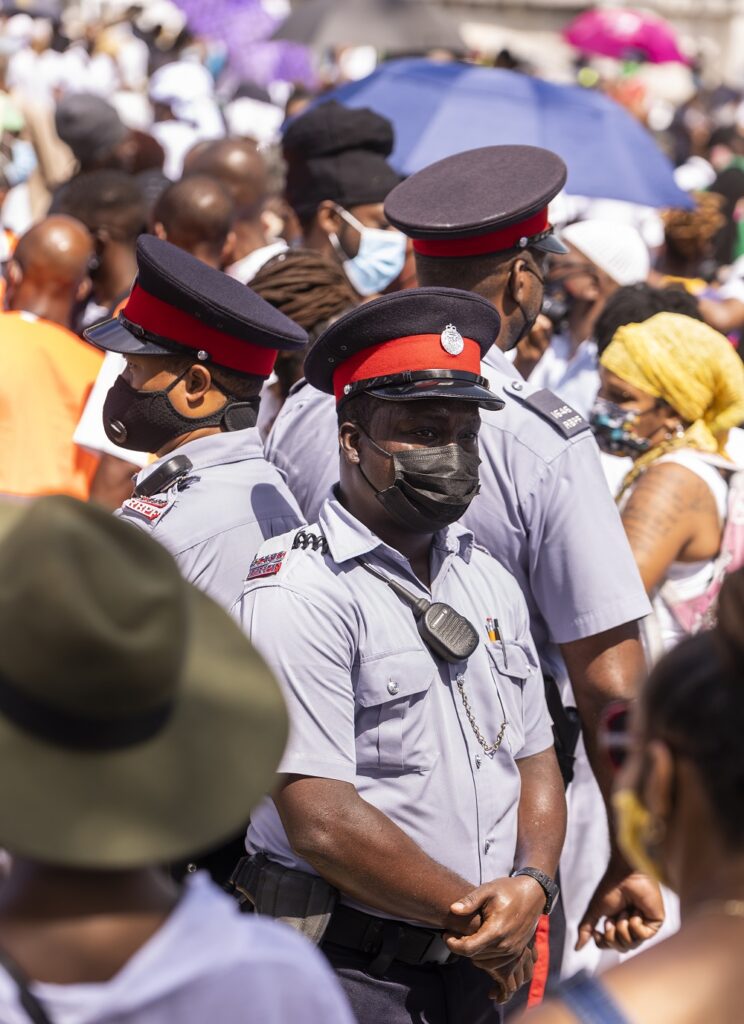

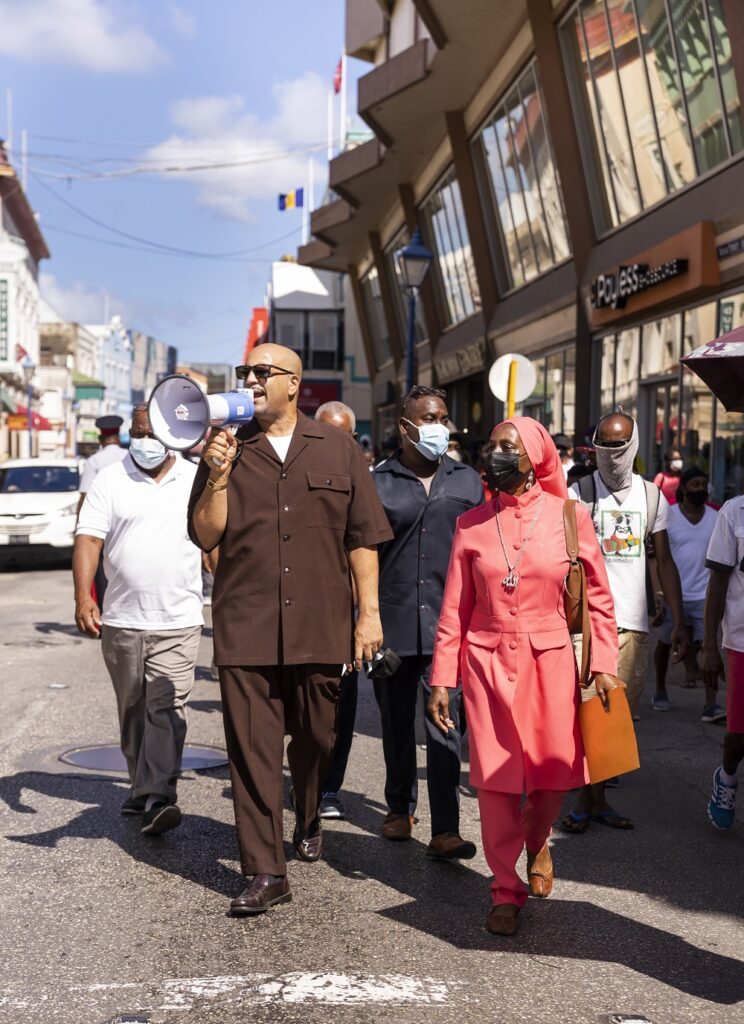
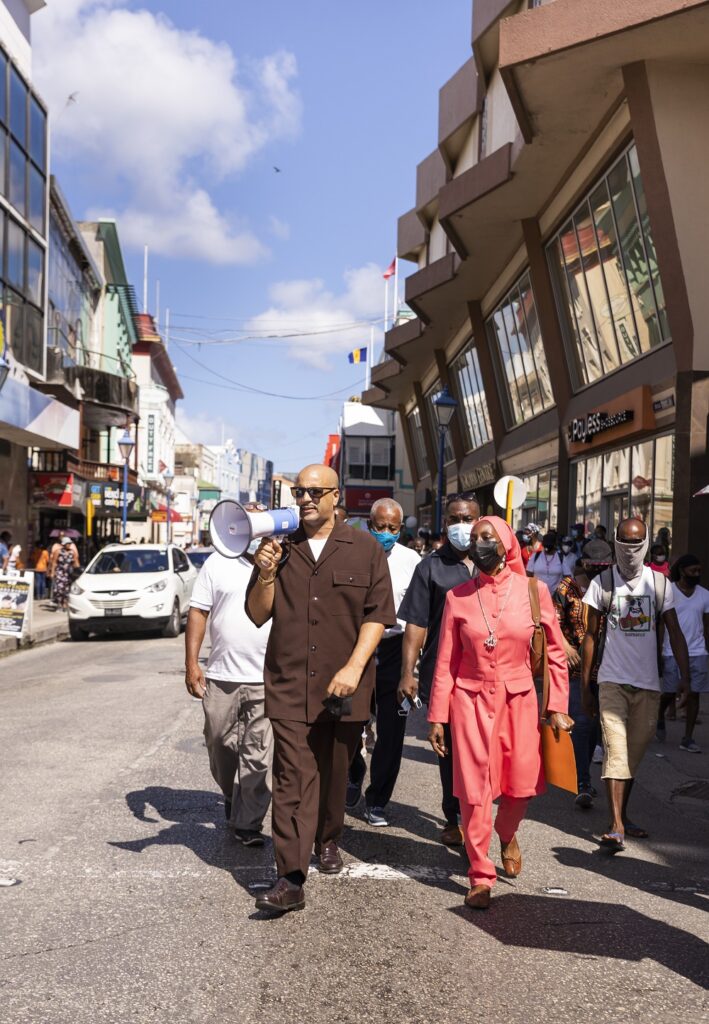
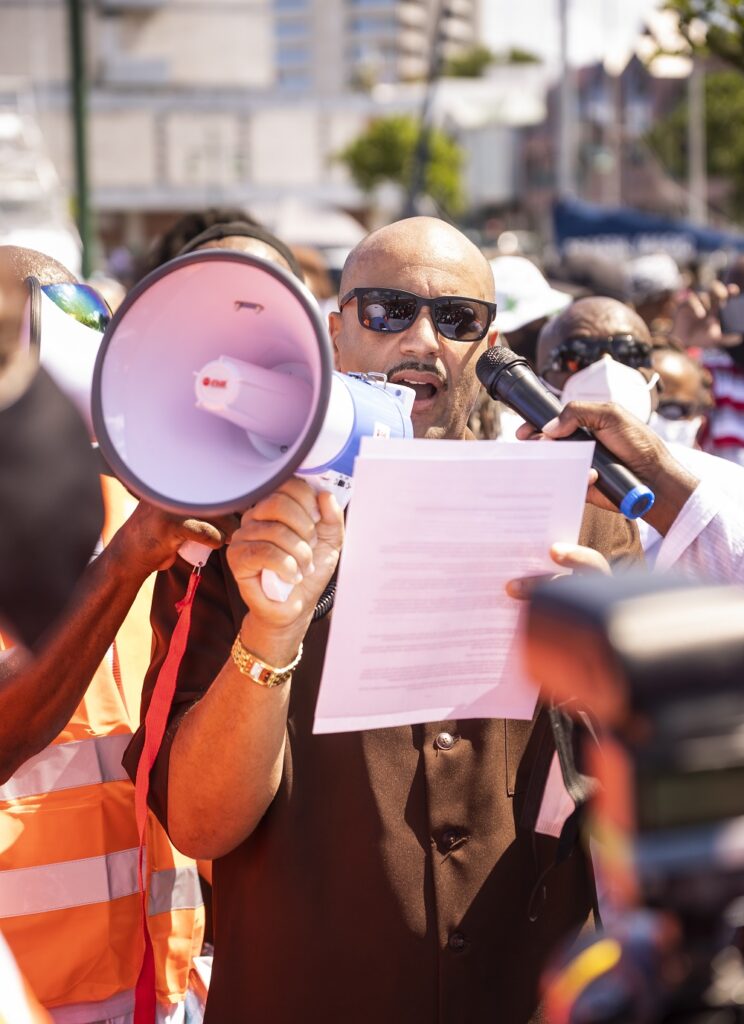
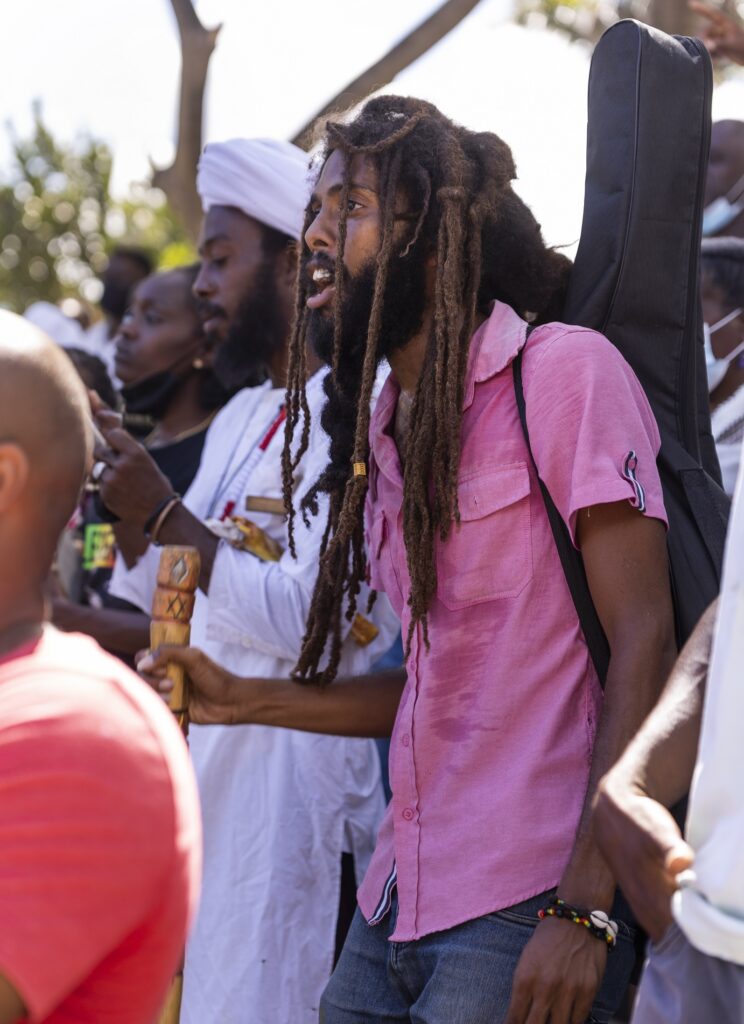
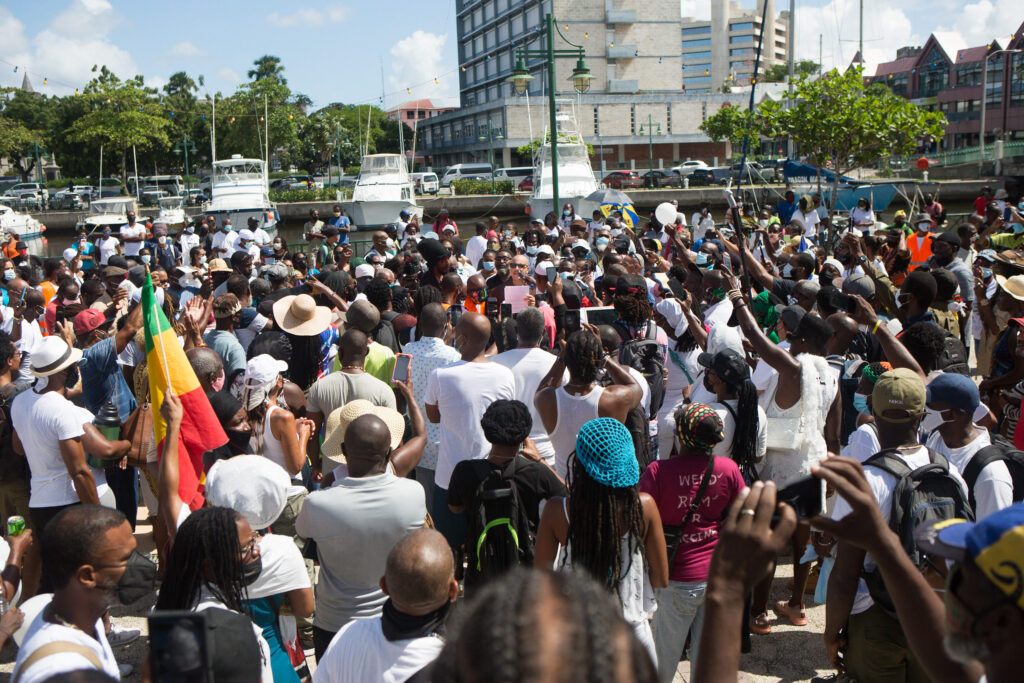
Student Minister Abdul Rahman addresses the participants and press in Heroes Square 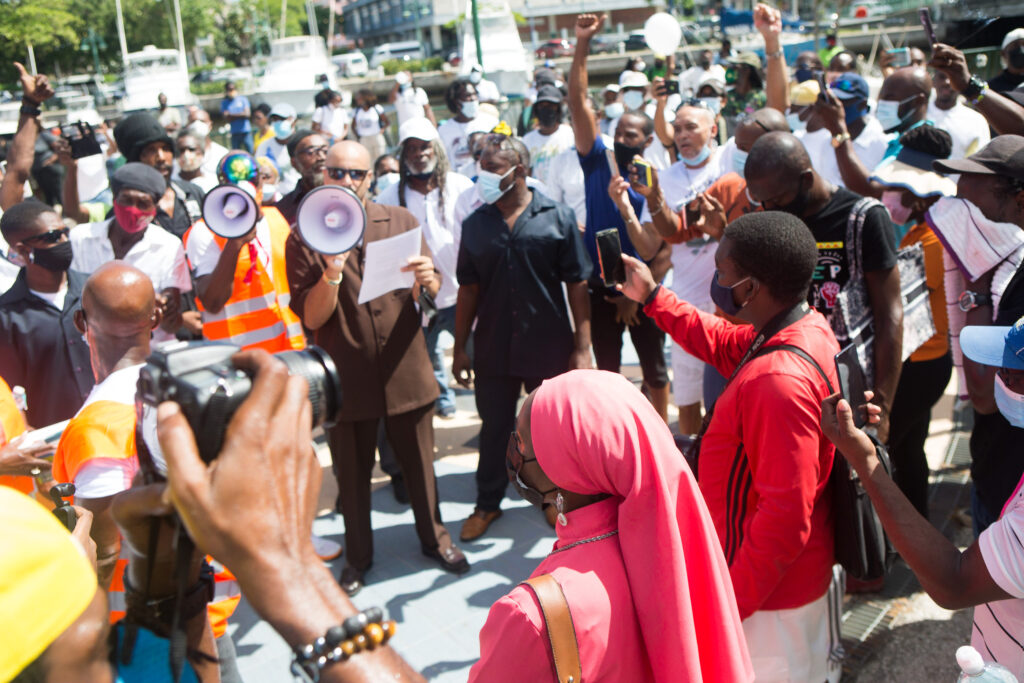
Student Minister Abdul Rahman addressing the crowd 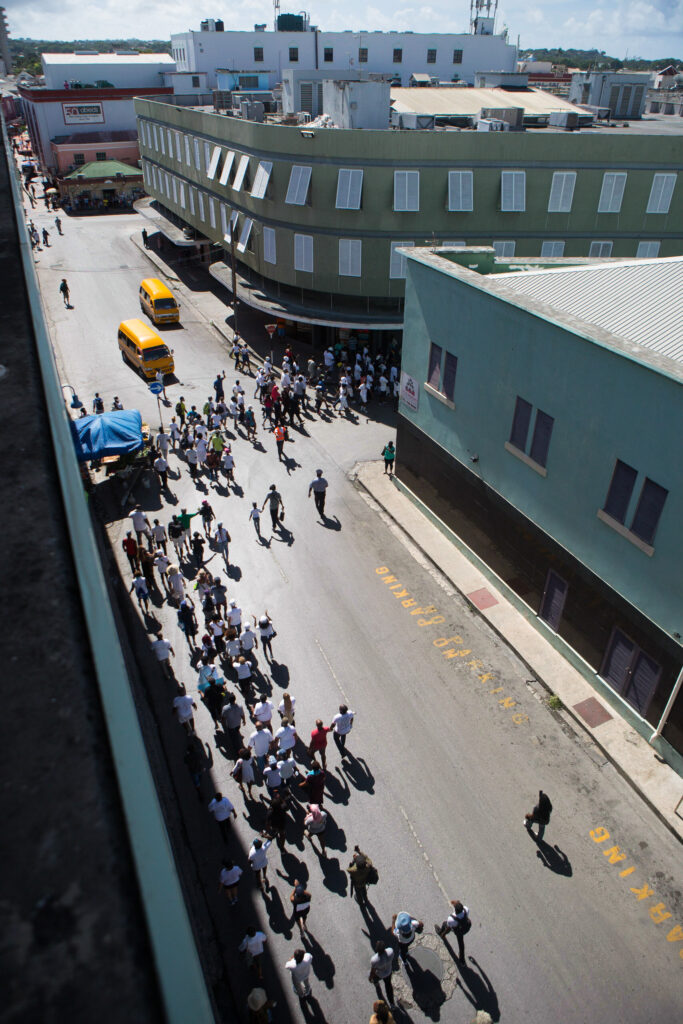
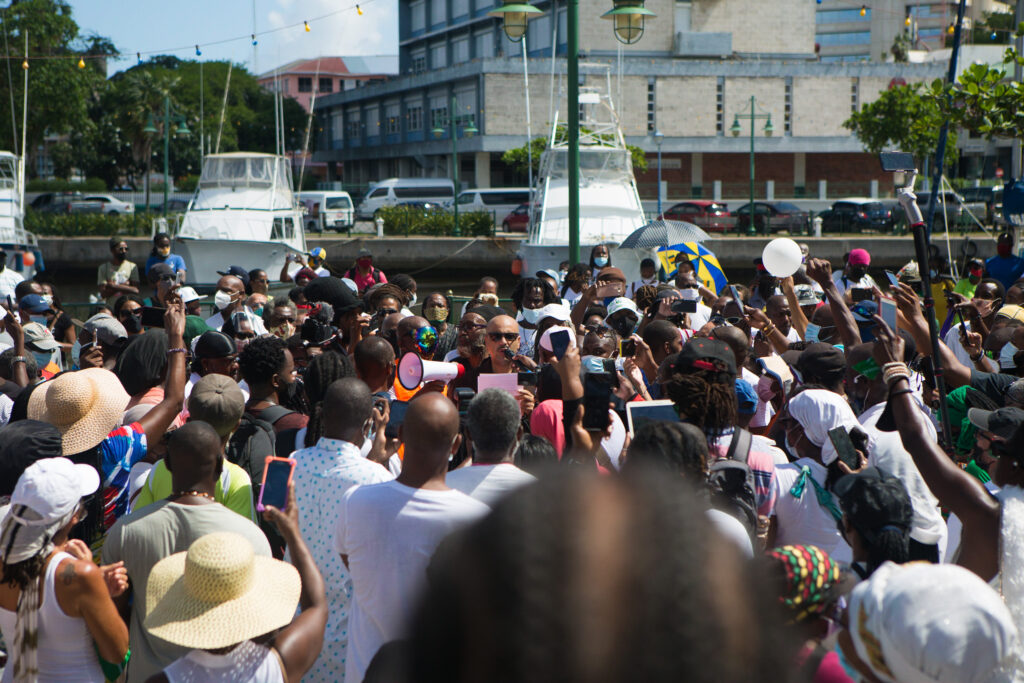
Student Minister Abdul Rahman address the crowd in Heroes Square at the end of the walk. 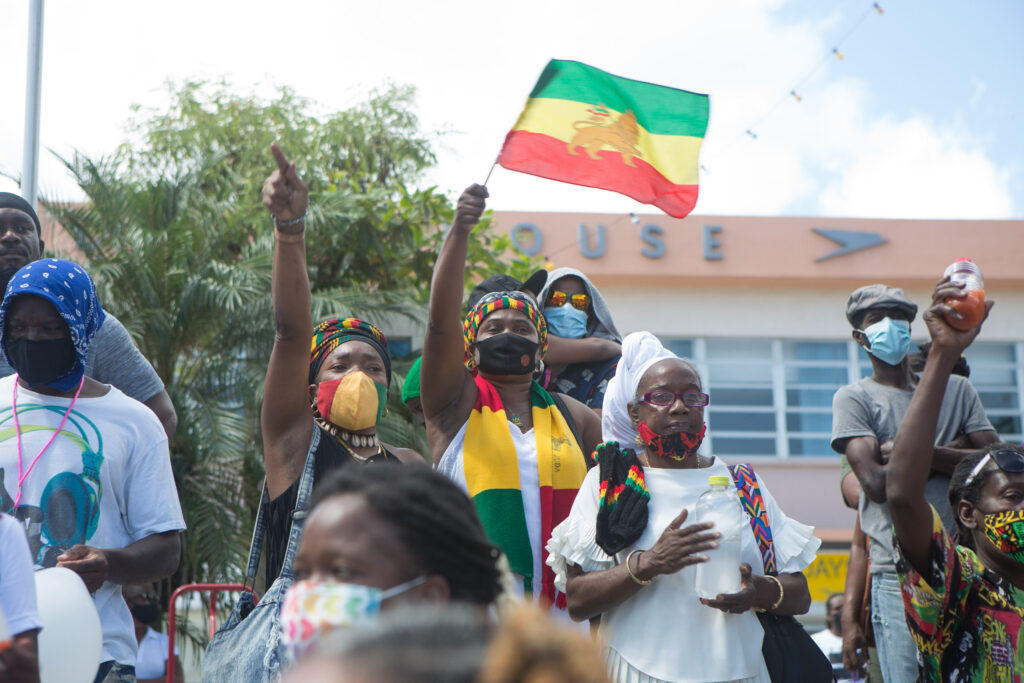
Heroes Square 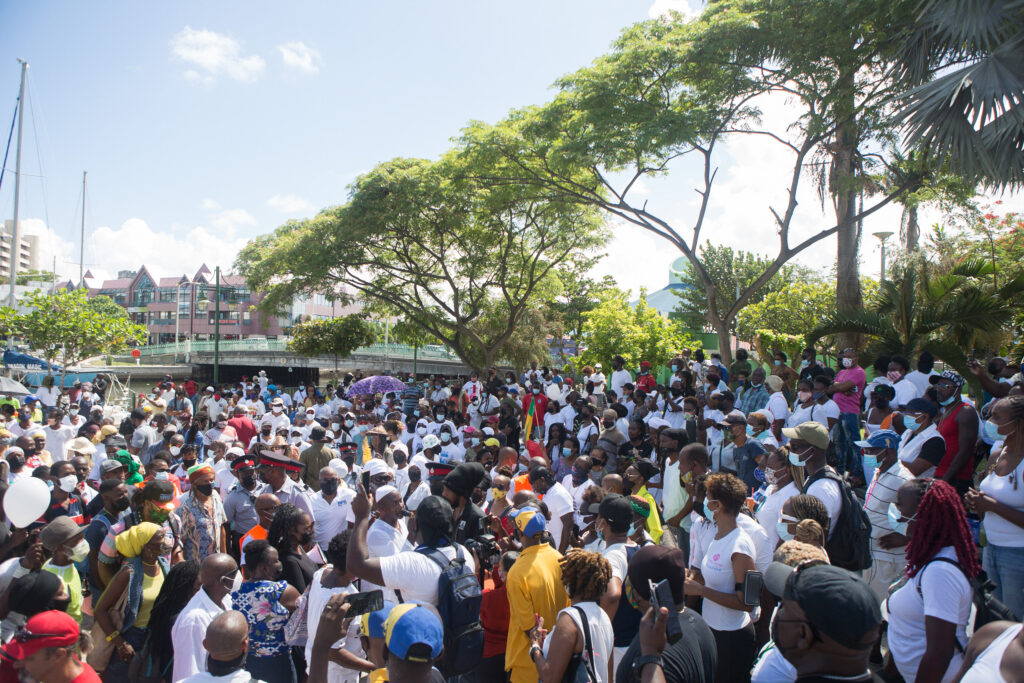
Heroes Square, Bridgetown, Barbados 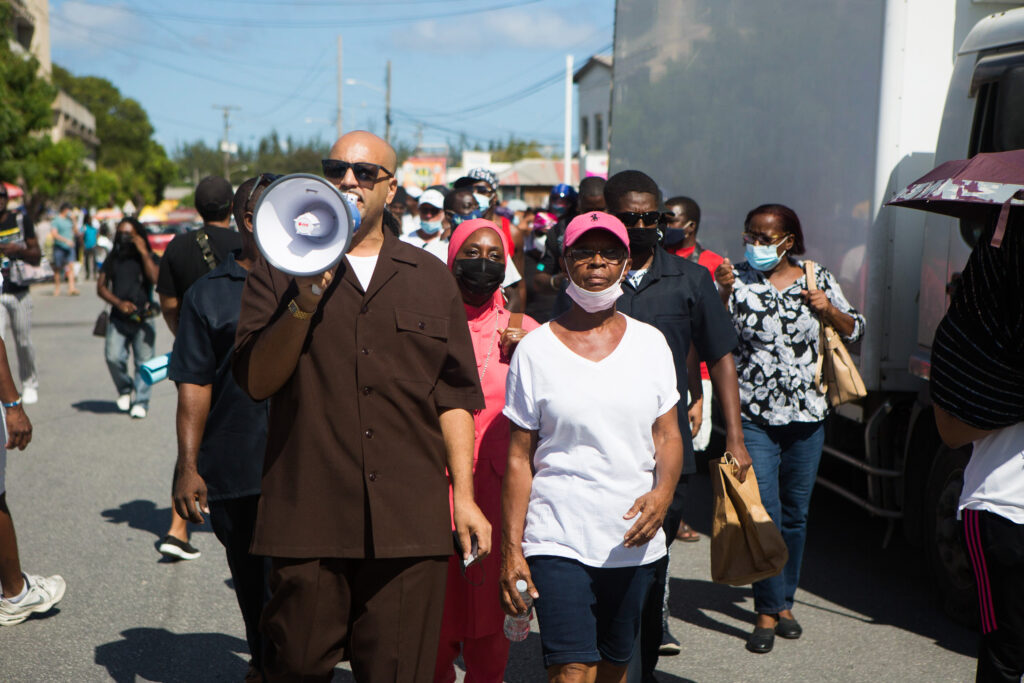
Barbados Freedom Walk 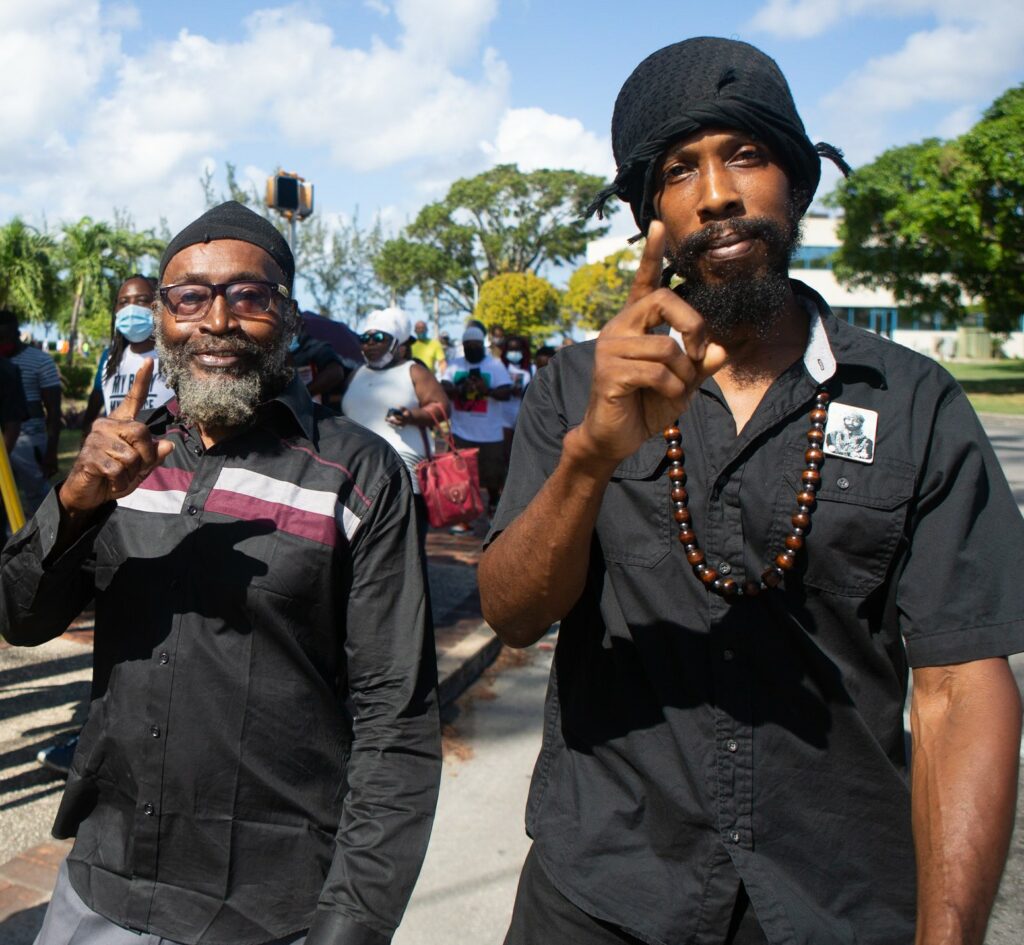
Brother Lumumba Batson (center) and Brother Emmanuel Beryllia (right) Co-organisers of the Walk 